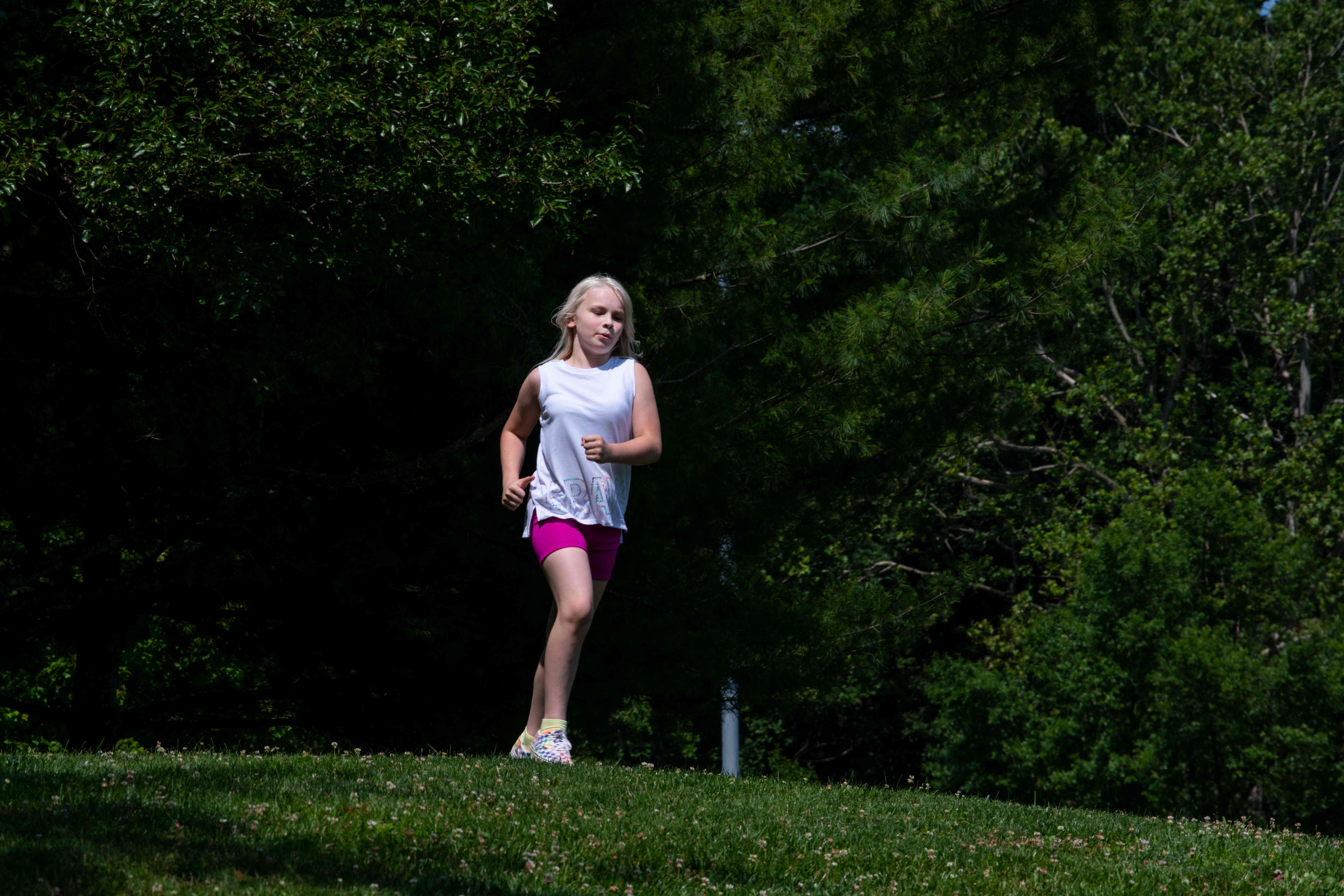Supreme Court says West Virginia trans girl can continue playing sports during challenge to state ban
The high court rejects the state’s attempt to kick Becky Pepper-Jackson off her middle school track and field team while legal challenges to a state ban on trans athletes continue
Your support helps us to tell the story
From reproductive rights to climate change to Big Tech, The Independent is on the ground when the story is developing. Whether it's investigating the financials of Elon Musk's pro-Trump PAC or producing our latest documentary, 'The A Word', which shines a light on the American women fighting for reproductive rights, we know how important it is to parse out the facts from the messaging.
At such a critical moment in US history, we need reporters on the ground. Your donation allows us to keep sending journalists to speak to both sides of the story.
The Independent is trusted by Americans across the entire political spectrum. And unlike many other quality news outlets, we choose not to lock Americans out of our reporting and analysis with paywalls. We believe quality journalism should be available to everyone, paid for by those who can afford it.
Your support makes all the difference.The US Supreme Court has determined that a 12-year-old transgender girl in West Virginia can continue to participate in school sports that align with her gender, marking the first time that the nation’s high court has weighed into the nationwide legislative campaign to prevent trans youth from joining school sports.
On 6 April, the Supreme Court voted 7-2 to reject the state’s attempt to enforce its ban and prevent Becky Pepper-Jackson from playing on her middle school’s track and field team – at least for now.
State Attorney General Patrick Morrissey had asked the court for an emergency motion that would allow the state to enforce its ban; the US Court of Appeals for the Fourth Circuit blocked that effort, prompting an appeal to the nine-member panel on the Supreme Court.
Two of the court’s conservative justices, Samuel Alito and Clarence Thomas, stated that they would have sided with West Virginia.
The state’s law appears to deny trans, nonbinary and intersex people entirely, claiming that gender is “based solely on the individual’s reproductive biology and genetics at birth.” It determines that a female is a person “whose biological sex determined at birth as female.”
Becky’s mother Heather Jackson said in court documents that Becky “receives puberty-delaying treatment and estrogen hormone therapy, so has not experienced (and will not experience) endogenous puberty.”
“I am not a boy,” Becky wrote in a statement to the court last year. “I do not want to run with the boys when there is a girls’ team and I should not have to run with the boys when there is a girls’ team. Running with the girls means a lot to me because I am a girl, and I should be treated like a girl, just like all my friends who are girls.”

A legal team, including American Civil Liberties Union and Lambda Legal, said the state’s law violates the 14th Amendment to the Constitution and Title IX of the Education Amendments Act of 1972, which prohibits sex discrimination in education.
Becky’s coaches and teammates have also “welcomed her participation,” and Becky thinks of them as a “second family,” according to court briefings.
“Despite regularly finishing near the back of the pack, she loves to play, have fun with her friends and try her best,” according to a filing from the family’s legal team.
Lawyers for the state argued that if the law is not allowed to be enforced, “sex-separated sports as they are traditionally understood will be functionally illegal in West Virginia public schools and universities.”
The Supreme Court’s decision came the same day that President Joe Biden’s administration proposed a rule change to landmark federal antidiscrimination law that – if it survives legal challenges and a lengthy review period – could deal a significant blow to state-level laws and proposals targeting trans student athletes.
At least 20 states now ban trans athletes from joining sports that align with their gender, after Kansas lawmakers voted to override the governor’s veto of legislation banning the participation of trans women and girls from school sports, joining a wave of discriminatory legislation across the US targeting LGBT+ Americans.
Anti-trans legislation and rhetoric have consumed state legislatures, right-wing media, this year’s Conservative Political Action Conference, or CPAC, and, increasingly, members of Congress, where lawmakers in Washington DC are mulling national bills that mirror the proposals dominating state capitols.
One bill in the House of Representatives would would impose national restrictions on trans athletes of all ages by amending federal civil rights laws.
States are also increasingly advancing legislation and policies to restrict or eliminate access to medically necessary and potentially life-saving medical care and other support systems for trans youth.
At least 10 states have enacted laws or policies banning gender-affirming care for young trans people, and more than a dozen others are considering similar measures. More than half of all trans youth in the US between the ages of 13 and 17 are at risk of losing access to age-appropriate and medically necessary gender-affirming healthcare in their home state, according to the Human Rights Campaign.



Join our commenting forum
Join thought-provoking conversations, follow other Independent readers and see their replies
Comments